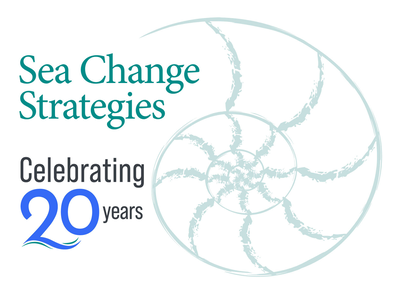Strivers, cool your engines
As a coach to social change makers, I frequently work with committed individuals who panic at the very thought of easing back on the throttle. It’s full speed only, all the time.
My clients know it’s unsustainable. They know it takes both a physical and mental toll. They know it strains relationships. But they don’t know how to be otherwise.
What causes what one might call Striver’s Syndrome? I’ve consulted with wiser folks on the matter, and opinions converge around trauma. Not just personal trauma, but collective trauma might be at work here.
Elizabeth Stanley is a noted expert in the neurobiology of stress, trauma, and resilience. Much of her wisdom comes from her own battle with PTSD, and the way in which striving provided an unhealthy outlet for dealing with psychic injuries from high-stress military service and sexual harassment.
In her path-breaking book entitled Widen the Window, she writes:
“Where did all this stress and trauma go? Predominantly into my body, where I could compartmentalize, ignore, deny, and override the cumulative effects of so many physical and psychic assaults and betrayals. Instead, I threw myself into striving and achieving, such as being student body president and valedictorian of my (fourth) high school; earning degrees from Yale, Harvard, and MIT; and attaining tenure at Georgetown, in one of the nation’s most prestigious programs for my field. Thus, as our society usually understands it, I was resilient—capable of tolerating and functioning through an immense amount of stress. In the midst of this compulsive striving, however, I couldn’t slow down enough to see what was actually going on: that my choices were inexorably undermining my resilience. Suck it up and drive on can facilitate tremendous achievement and success . . . until it doesn’t anymore.”
And then there’s collective trauma, a phenomenon gaining well-deserved widespread attention. The collective trauma of being Black in America. The collective trauma of the accelerating and largely unstoppable effects of climate change, aka ‘climate grief.’ The collective trauma of losing a way of life and a sense of normalcy to a viral pandemic. In theory, striving can address both the underlying social problem and our own dysregulated nervous systems. But in reality it’s a losing proposition.
So how do we deal with Striver’s Syndrome. I’ll explore that more deeply in a future post, but it has to begin with awareness. We need to see that our striving response to trauma is normal, understandable and deeply counterproductive. Once this invisible force in our lives becomes visible, it begins to become workable.
Meanwhile, I return to a favorite author, activist and hell-raiser Edward Abbey, who leaves is these parting words of wisdom.
“One final paragraph of advice: do not burn yourselves out. Be as I am – a reluctant enthusiast….a part-time crusader, a half-hearted fanatic. Save the other half of yourselves and your lives for pleasure and adventure. It is not enough to fight for the land; it is even more important to enjoy it. While you can. While it’s still here. So get out there and hunt and fish and mess around with your friends, ramble out yonder and explore the forests, climb the mountains, bag the peaks, run the rivers, breathe deep of that yet sweet and lucid air, sit quietly for a while and contemplate the precious stillness, the lovely, mysterious, and awesome space. Enjoy yourselves, keep your brain in your head and your head firmly attached to the body, the body active and alive, and I promise you this much; I promise you this one sweet victory over our enemies, over those desk-bound men and women with their hearts in a safe deposit box, and their eyes hypnotized by desk calculators. I promise you this; You will outlive the bastards.”
